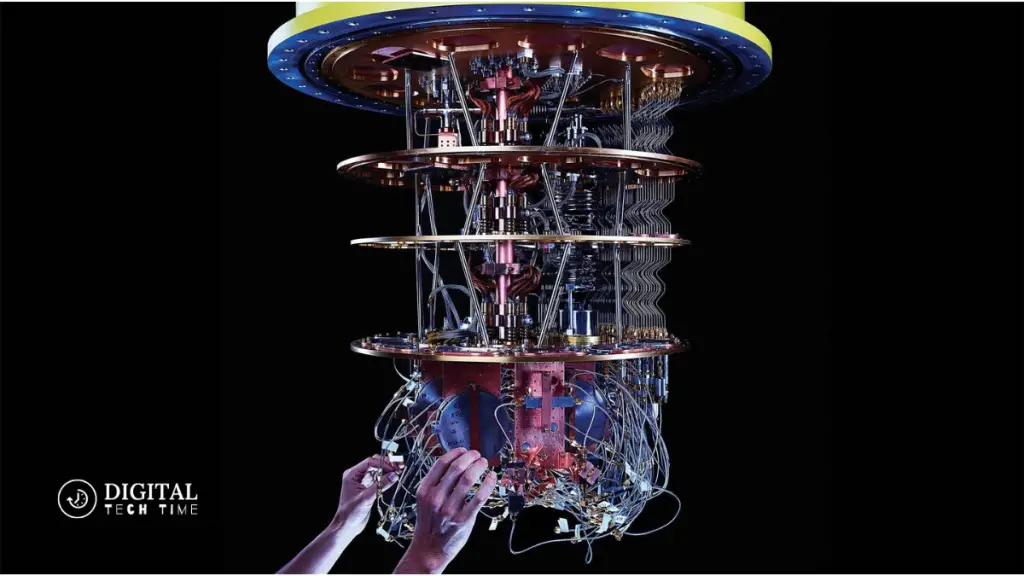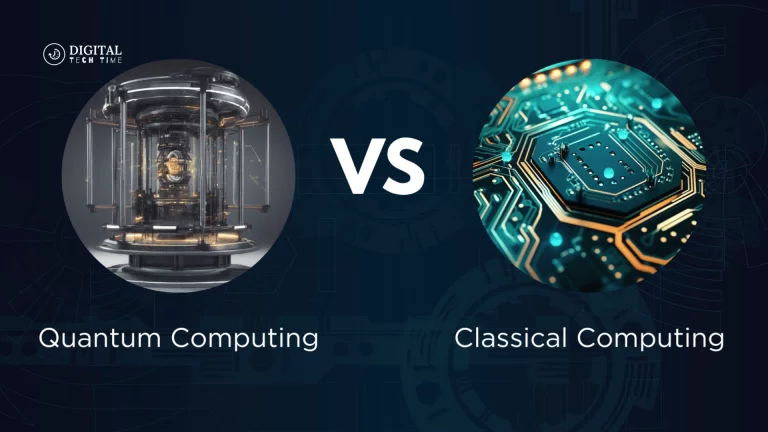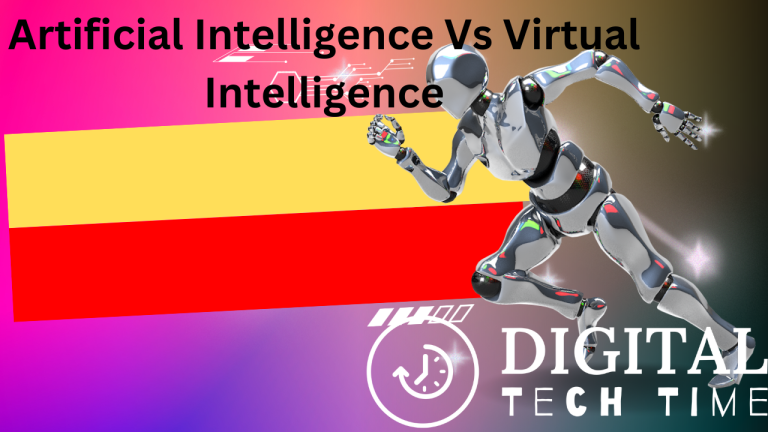Why Might Businesses Be Interested in Using Quantum Computers
In the ever-evolving landscape of technology, quantum computing has emerged as a revolutionary force, promising to reshape the way we approach complex computations and data processing. As businesses seek to gain a competitive edge, the allure of quantum computers has become increasingly compelling. These extraordinary machines harness the principles of quantum mechanics, offering a paradigm shift from classical computing and unlocking new realms of computational power.
Table of Contents
Understanding the Potential of Quantum Computing

The potential of quantum computing lies in its ability to solve complex problems intractable for classical computers. By harnessing the principles of quantum mechanics, quantum computers can perform specific calculations with unparalleled efficiency, offering solutions to challenges that have long eluded traditional computing methods.
One of the critical advantages of quantum computing is its ability to process vast amounts of data simultaneously. This parallel processing capability allows quantum computers to explore multiple possibilities concurrently, dramatically reducing the time required to find optimal solutions. This trait is precious in areas such as optimization problems, machine learning, and cryptography, where vast computational resources are needed.
Benefits of Quantum Computers for Businesses

As businesses grapple with ever-increasing data volumes and complex computational challenges, the potential benefits of quantum computing are becoming increasingly apparent. Here are some of the critical advantages that quantum computers offer to enterprises:
- Accelerated Problem-Solving: Quantum computers can tackle complex optimization problems, such as logistics and supply chain management, financial portfolio optimization, and scheduling challenges, with unparalleled speed and efficiency.
- Enhanced Cybersecurity: Quantum computing has the potential to revolutionize cryptography and cybersecurity. Quantum algorithms can break traditional encryption methods but can also enable the development of virtually unbreakable quantum-resistant encryption techniques.
- Improved Machine Learning: Quantum computers can significantly enhance machine learning algorithms by processing vast amounts of data and identifying intricate patterns more efficiently than classical computers.
- Advanced Simulations: Quantum computers excel at simulating complex quantum systems, enabling more accurate modeling of molecular structures, chemical reactions, and quantum phenomena, which can lead to breakthroughs in fields like drug discovery, materials science, and energy research.
- Competitive Advantage: By embracing quantum computing early, businesses can gain a significant competitive advantage, positioning themselves at the forefront of innovation and disrupting their respective industries.
Quantum Computing vs. Classical Computing

To fully appreciate the potential of quantum computing, it is essential to understand how it differs from classical computing, the technology we have relied on for decades. Here’s a comparison of the two paradigms:
- Computational Approach:
- Classical Computing: Classical computers process information using binary digits (bits) representing 0 or 1.
- Quantum Computing: Quantum computers use quantum bits (qubits), which can simultaneously exist in a superposition of 0 and 1, allowing for parallel computation.
- Computational Power:
- Classical Computing: The computational power of classical computers increases linearly with the number of bits.
- Quantum Computing: The computational power of quantum computers can grow exponentially with the number of qubits, enabling them to tackle specific problems much more efficiently than classical computers.
- Algorithms:
- Classical Computing: Classical algorithms are based on deterministic logic and follow a sequential approach to problem-solving.
- Quantum Computing: Quantum algorithms leverage quantum phenomena like superposition and entanglement, allowing for parallel processing and potentially faster solutions to specific problems.
- Error Handling:
- Classical Computing: Classical computers are generally robust to errors and can correct them using established error-correction techniques.
- Quantum Computing: Quantum computers are susceptible to errors caused by quantum decoherence, requiring specialized error correction methods to maintain the integrity of quantum computations.
- Applications:
- Classical Computing: Classical computers are versatile and can handle various computational tasks, from general-purpose computing to specialized applications.
- Quantum Computing: Quantum computers excel at specific problems, such as optimization, simulation, and cryptography, but may only sometimes outperform classical computers for some computations.
Quantum Computing in the Future of Business

As quantum computing technology continues to advance, its impact on the future of business is poised to be profound. Here’s how quantum computing could shape the business landscape in the years to come:
- Disruptive Innovation: Quantum computing has the potential to disrupt established industries and business models, creating new opportunities for innovation and competitive advantage. Companies that embrace quantum computing early on may gain a significant edge over their competitors.
- Enhanced Decision-Making: With the ability to process vast amounts of data and solve complex optimization problems, quantum computing can revolutionize decision-making processes across various industries, leading to more informed and efficient business strategies.
- Accelerated Research and Development: The computational power of quantum computers can accelerate research and development efforts in drug discovery, materials science, and energy research, enabling faster innovation cycles and breakthroughs.
- Secure Digital Infrastructure: Quantum-resistant cryptography and secure communication protocols enabled by quantum computing can fortify digital infrastructure, protecting businesses from cyber threats and ensuring the integrity of sensitive data.
- Personalized Products and Services: By analyzing vast amounts of data and identifying intricate patterns, quantum computing can enable highly customized products, services, and experiences tailored to individual customer preferences and needs.
- Collaborative Ecosystems: The complexity of quantum computing may foster collaborative ecosystems, where businesses, research institutions, and governments work together to advance the technology and explore its applications across various domains.
Read Also: How to Mastering Article Writing with AI Prompts: Full Guide
Frequently Asked Questions
What is quantum computing?
Quantum computing is a type of computing that uses quantum-mechanical phenomena, such as superposition and entanglement, to perform operations on data. Unlike classical computers, which use bits as the smallest unit of data, quantum computers use quantum bits, or qubits, which can represent and store information in 0s and 1s simultaneously thanks to superposition.
How does quantum computing differ from classical computing?
While classical computers use bits as the basic unit of data, quantum computers use qubits, which can encode information in multiple states simultaneously, allowing them to handle complex computations more efficiently. Quantum computing fundamentally differs from classical computing in its ability to process large data sets and solve complex problems much faster.
Why are businesses interested in quantum computing?
Businesses are drawn to quantum computing due to its potential to solve complex problems currently intractable for classical computers. This includes logistics optimizations, advanced drug discovery simulations, secure cybersecurity encryption, and more. The power of quantum computing could lead to significant advancements in efficiency and new technological capabilities.
What are some practical applications of quantum computing in various industries?
- Finance: For portfolio optimization and fraud detection.
- Pharmaceuticals: To accelerate drug discovery and molecular modeling.
- Energy: For simulation of quantum materials and optimization of distribution systems.
- Logistics: To improve supply chain efficiency and inventory management.
- Aerospace: This is used to optimize flight paths and design better materials.
What are the challenges facing quantum computing?
Quantum computing faces several challenges, including error rates, qubit coherence times, system scalability, and the development of new quantum algorithms. The current need for extremely low temperatures for qubit stability poses a significant technological hurdle.
Conclusion
As we stand on the precipice of a quantum revolution, the allure of quantum computing has captured the imagination of businesses worldwide. This remarkable technology promises to unlock new frontiers of computational power, enabling us to tackle complex challenges that have long eluded classical computing methods.







